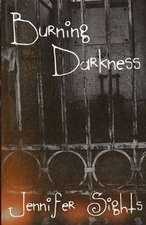Marci's Desire
Autor Sara Lucken Limba Engleză Paperback – 29 aug 2014
Two different worlds . . .
The daughter of a high-ranking Treasury official, as game for mastering the new contraption called a bicycle as she is for studying art and photography, Marci Winters turns heads inside Washington, D.C.’s dazzling social circles. When the collegeeducated beauty is caught in an intimate encounter with political operative Stanton Caldwell, a crushing scandal threatens, forcing an appalled DeWitt Winters to send his daughter far away.
One thrilling passion . . .
Armed with her camera, Marci arrives in the grandeur of Yellowstone National Park and discovers a natural wonder: Lieutenant Myles Cade McDowell. Stationed at Fort Yellowstone to protect its wildlife from poachers, Cade hears of a test to be conducted across 400 miles of demanding terrain to prove the worthiness of an Army bicycle corps. Believing bikes could streamline how the park is patrolled, Cade joins the great ride himself. Capturing the adventure in a photo essay is a spitfire from the East who also captures Cade’s heart—but can she keep pace pedaling alongside this muscular and competitive military man? The lieutenant will soon discover that the open frontier— like love itself—is full of surprises!
Preț: 131.19 lei
Nou
Puncte Express: 197
Preț estimativ în valută:
25.11€ • 27.29$ • 21.11£
25.11€ • 27.29$ • 21.11£
Carte disponibilă
Livrare economică 31 martie-14 aprilie
Preluare comenzi: 021 569.72.76
Specificații
ISBN-13: 9781476798387
ISBN-10: 1476798389
Pagini: 368
Dimensiuni: 127 x 203 x 25 mm
Greutate: 0.33 kg
Editura: Gallery Books
Colecția Gallery Books
ISBN-10: 1476798389
Pagini: 368
Dimensiuni: 127 x 203 x 25 mm
Greutate: 0.33 kg
Editura: Gallery Books
Colecția Gallery Books
Extras
Marci’s Desire
Wells College, Aurora, New York, March 30, 1895
Marcia Diane Winters sat on a big rock on the shores of Lake Cayuga watching the sun dip behind the ridges that surrounded the lake. Her favorite subject for her paintings was this gloaming, and this evening she looked with a critical eye at her canvas. She thought she had captured the pinks and blues that were spreading throughout the low clouds.
Just then a low-flying vee of migrating geese flew into her view, and putting down her brush, she watched as the birds dutifully followed their leader, the honking sounds almost mournful as the birds wound their way toward the marshland at the end of the lake. When they were lost to her sight, she began packing up her paints and taking down her easel.
Marcia, who preferred to be called Marci, was in her third year at Wells College, and gathering up her belongings, she walked up the slope to the main building on the campus. The building was impressive without being ostentatious, in keeping with the desires of the late founder, Henry Wells. It had been his vision to provide an institution of higher learning for women that was fully equal to any men’s college in both equipment and facilities, and in Marci’s estimation the school had exceeded his stated goal.
When Marci entered the building, she heard the a cappella choir practicing in the music room. One of her roommates was Georgiana Hayden, and Marci recognized Georgiana’s voice as she began the descant portion of the song. Marci smiled as she continued past the offices and the library on her way to the residence wing of the building. This wing housed the resident teachers and a little more than ninety girls.
Her room, which was intended to house four girls, now had only three—all New York girls, Georgiana from Syracuse, Marci, technically from Roxbury, although her parents were now in Washington, and Mazie Just, a New York City girl.
When Marci entered the room, she encountered Mazie, who was sitting in the middle of the floor, crying loudly.
“What has Lucien done now?” Marci asked as she put her easel in the corner of the room.
“I don’t think he loves me. I haven’t received a post from him in four days.”
“For God’s sake, he’s a lawyer. Maybe he’s too busy to write to you this week.” Marci had a hard time keeping her patience with Mazie, who was quick to complain about everything.
“That’s easy for you to say. You get flowers from Stanton every week. Look, today he sent hyacinths. You’ll think of your lover all night long because the smell will perfume the entire room.”
“Stanton is not my lover.” Marci shook her head.
“Well, maybe not in the literal sense of the word, but in his mind he’s your lover. No one gets more notes and telegrams than you do, Marci Winters. And he’s busier than Lucien Alexander will ever be. Stanton is all over Washington, or so you say.”
“I do get a lot of attention from him,” Marci said. “Why don’t you come with me up to the gymnasium? If you work out on the Sargent apparatus, you’ll feel a lot better.”
“You go on. We’ve got a test tomorrow in zoology and botany, and unlike some people I know, I have to study.”
Marci headed for the gymnasium on the second floor. Wells College was one of only twenty-six schools to receive the wonderful apparatus invented by Dr. Dudley Sargent, a professor of anatomy and physiology at Harvard University, and Marci made use of it daily. When one entered the cavernous room, it looked as if the iron frames and crossing bars were part of the ceiling, but they supported trapezes, horizontal and vertical ladders, and swinging hemp ropes.
She climbed one of the ladders and transferred to one of the bars of a trapeze. Pumping her legs, she got the swing going, then lowered her body so that she supported herself with the bend of her knees. With her arms hanging down, the feeling was exhilarating. She wished Mazie had come with her, so that she could have practiced some of the aerial somersaults she knew.
Just as she was dismounting, dropping down to the mat, which was more than a foot thick, she heard the door open and the distinct click of shoes on the gymnasium floor. Marci adjusted the split skirt of her exercise costume and stood ready to take her reprimand.
It is not becoming for a young woman to take such delight in the toning of her muscular structure.
When you take your place in society, others will look with disdain upon your prideful display of your body.
A Wells girl does not yearn to find her place among the acrobats who perform for Barnum and Bailey.
It is with much distress that I forbid you to use the apparatus for one week.
How many times had she heard Dean Smith tell her this over her three years at college?
“Miss Winters, I thought I might find you here.”
Miss Helen Fairchild Smith was the dean of the school. A short woman, she always stood erect, exuding dignity and serenity. She took it upon herself to train the girls to accept their places in society. She embodied Mr. Wells’s original philosophy in training every woman that passed through the college to realize that a woman’s true and only sphere was her influence on the home and society. It was instilled in every student that the family was the real source of influence, and whether it be for weal or woe, the woman had the most influence over the future of civilization.
“Miss Winters, following the dinner hour, I would like for you to meet with me in the library. I will expect you there by eight o’clock.”
“Yes, ma’am.” Marci listened as Dean Smith walked the length of the gymnasium, her footfall once more sounding loudly on the hardwood floor.
Dean Smith had surely known what Marci was doing on the apparatus, yet the dean had not chastised Marci. And now she was asked to meet in the library. Was she being expelled?
She could vividly recall the last evaluation the dean had written to her parents: Marci is one of my most challenging students. She is a natural leader—smart, talented, and personable. If only she weren’t so headstrong and opinionated.
Both her parents had reprimanded her for not conforming to the Wells philosophy, and DeWitt Winters had been particularly critical. He often reminded her of the privilege it was to attend the college where Frances Cleveland, the first lady of the United States, had matriculated. If Marci was being asked to leave school, how would she face her father? How would she face Stanton?
“Oh, I am sweating so,” Marci said a few minutes later, speaking to Georgiana. Marci dabbed at her face with a towel.
“Nonsense, child, Wells women never sweat. They glow, elegantly,” Georgiana said, perfectly mimicking Dean Smith.
Marci laughed out loud. “Yes, ma’am.”
“I see you got your weekly delivery of flowers.” Georgiana walked over to the table, then leaned forward to smell the fragrant pink and white hyacinths. “I didn’t read the card, but I can guess what it says. ‘With affection, Stanton Caldwell.’ ” Georgiana exaggerated the words as she said them.
“Well, this time you’re wrong. It says, ‘With much affection, Stanton Caldwell.’ ”
“Why does he always sign his first and last name? Does he think you’ll forget who he is?”
“You just don’t understand Stanton. He is a very formal person.”
“Ha! You’re about the most informal person I know.”
“Ahch!” Marci clutched at her chest as she stood in her underwear before her roommate. “You would say that to a Wells girl?”
“Yes, a Wells girl who has no modesty. I still don’t understand how you got stuck with a staid, old man like Stanton.”
“He’s not that old, and besides, I met him at President Cleveland’s inaugural ball. No one finds fault with Mrs. Cleveland for marrying a man twenty-eight years older than she is, so who can say anything if Stanton is twelve years older than I am?”
“Oh, yes, how can I forget the budding socialite on the arm of her father, the secretary of the treasury, at the inaugural ball,” Georgina said with an affected accent.
“He’s not the secretary of the treasury. He’s the second comptroller, so that means he’s just a glorified accountant, and there are a lot of very boring things he and his family are expected to attend.” Marci sucked in her cheeks, puckered her lips, then tilted her head back. “ ‘Oh, my dear,’ ” she said in a stilted voice, “ ‘how delightful that you could come to the tea of the Washington Ladies’ Society for the preservation of our little feathered friend, the needle-beaked twit.’ ”
Georgiana laughed out loud. “Well, after all, doesn’t the needle-beaked twit deserve to be preserved?”
Both Georgiana and Marci were laughing as Marci continued to dress for dinner. She chose the most conservative dress in her wardrobe as she remembered the meeting she was to have with Dean Smith. If she had to leave Wells, she would miss the friendships she had formed while she was here.
“I’m serious. What was there about Stanton that made you attracted to him? He seems so different from you.”
“Actually, he chose me, but I don’t really know how he did it, because there were about ten thousand people in the Pension Hall for the inauguration. But what really impressed me was how much he already knew about me. He knew my father’s position and that we’d moved from Roxbury and that we were now living on V Street.”
“Didn’t that make you feel a little creepy?”
“Oh, no, not when I saw how handsome he was! You know, Georgiana, he could be a model for a Norse god—blond hair, deep blue eyes set in a perfect oval face. There’s only one thing I don’t like and that’s his mustache.” Marci smiled when she thought of the tickle his mustache caused when his lips brushed against her.
“All right. We accept that he’s a good-looking man.”
“He is, isn’t he? And he’s mature. Sometimes I have to pinch myself just to remind me how lucky I am to know someone like Stanton. Last summer we saw each other almost every week. And then when I was home for the holidays, we spent as much time together as we could, but he’s always so busy.”
“Whatever he did, in my book he’s proven himself. What man sends his girlfriend flowers every week of the year?”
“Grover Cleveland,” Marci said.
“Oh, yes. It must be something about a Wells girl. I wonder if Mrs. Cleveland’s roommate knew she was going to be the wife of the president of the United States when she was getting all her bouquets. Tell me, will you invite me to your wedding?”
“Of course I will. I may even ask you to be a bridesmaid, but it may be a while, because he hasn’t even asked me yet.” Just then the clock in the hallway chimed seven. “We’d better hurry. I have a conference with Dean Smith right after dinner, and I don’t want to be late.”
“In the library?”
“Yes, how did you know that?” Marci asked.
“Because she asked me to meet her at eight o’clock.”
Marci let out a deep sigh. “Thank goodness. It’s not just me. I thought I’d done something really dreadful this time.”
Following dinner, Marci, Georgiana, and six other young ladies gathered in the library.
“What have we done?” Ellen Barker asked the group. “Does anyone know why we’re here?”
“For her to ask us to meet at eight o’clock? That’s really not characteristic of Dean Smith, especially when she knows we all have examinations tomorrow,” Georgiana said.
“No one told about us sneaking out of the dormitory and meeting the boys from Cornell last weekend, did they?” Carrie Frey asked. “Maybe someone heard when they threw rocks on the windows.”
“That was nothing,” Marci said. “There were ten girls and two boys. If anything, the boys should get in trouble.”
“Shh, I hear her coming,” Georgiana said.
Everyone grew respectfully quiet waiting for the dean. When she stepped into the library, all eight women looked like soldiers standing at attention.
Dean Smith laughed when she saw them. “Ladies, how did you know what I’m going to ask of you? Please, sit down.” She directed them toward a table, where she took the head chair.
“Every year at this time, certain women’s institutions are invited to participate in a social engagement”—Dean paused for effect—“at the United States Military Academy.”
There were several oohs and aahs as the girls tittered among themselves.
“This year, Wells College has been honored with an invitation to participate in this prestigious event, and it is my distinct pleasure to announce that you girls have been selected to represent us with your presence.” Dean Smith lowered her head and clasped her hands before her. “I must say that not all of you met with my wholehearted support, but each of you had multiple advocates from the faculty singing your praises. Therefore, I have put my imprimatur upon each one of you to represent Wells. Do not disappoint me.” The dean looked directly at Marci.
“Several of you are very close to Miss Nash in the art department, and I have selected her to act as your chaperone. Remember, ladies, it is an honor to be invited to West Point, for the United States Military Academy represents the pride of our nation.”
All the girls reacted excitedly over the prospect of going to the academy, though it was Georgiana who found the courage to ask, “What is this social engagement?”
Dean Smith paused for a moment, then smiled, perhaps as if remembering something from her younger days, when she lived at Annapolis, where her father had taught mathematics at the Naval Academy. “You’re going to a hop, my dear. A dance.”
“Oh!” Carrie Frey squealed in delight. “Oh, yes, I saw a corps of cadets marching in the Fourth of July parade in Albany. They are all so handsome!”
“When do we get to go?” Ellen asked.
“The event will be this weekend. You will take the train into the city and then travel by boat up the Hudson River. I know that many of your homes are clustered not far from the river, and I might suggest that before boarding the train, you notify your parents should they want to visit with you. We will leave tomorrow as soon as all of you have written the zoology examination.”
A general groan of dissent came from the girls.
“Why did you have to remind us of that?” Carrie asked.
“Because first and foremost, you are students. This junket is to be considered a pleasant interlude intended to enforce your academic experience. And now, ladies, I suggest you get a good night’s sleep. I’ve been told by Professor Hart that you will be tested on primates tomorrow. I trust that your venture into the night air a few evenings past was for just such study. Good night.”
“That woman knows everything,” Ellen whispered as the girls made their way back to the dormitory.
When Marci and Georgiana returned to their rooms, Georgiana was bubbling over with excitement. “Oh, isn’t this the most wonderful thing? Just think, a weekend at West Point. I wonder who I’ll dance with. Well, it doesn’t matter. It’s like Carrie said, every cadet is handsome. I think they have to be handsome in order to get into the academy.”
Marci laughed. “Don’t be silly. Do you really think they’d look at somebody and say, ‘You can’t come here because you’re too ugly’?”
“Well, it must be something like that. I’ve never seen a cadet who wasn’t handsome. I just know this will be a wonderful weekend. Aren’t you excited?”
“I don’t know.”
“What do you mean, you don’t know?”
“I know what she means,” Mazie said as she sat up in her bed. “I wouldn’t go because I’d be betraying Lucien. And if Marci goes, what about poor Stanton?”
“I don’t think it’s the same thing. Lucien has asked you to marry him,” Georgiana said.
“And Stanton just sends flowers,” Marci said with a laugh.
“What’s the harm of a small social outing at West Point? When you look at it logically, it’s practically a civic duty. Besides, you’ll be here to take care of the flowers. You can pretend they’re from Lucien.”
“Oh, Georgiana, you’re so logical. That makes perfect sense to me,” Marci said, as she sat down at her desk and opened her zoology book.
The Wells girls waited on the platform of the Delaware, Lackawanna, and Western Railroad after having been brought by coach to Ithaca. They would change trains at Owego and reach Hoboken, New Jersey, in the early morning.
Many were doing as Dean Smith had suggested—notifying their parents that they would be at West Point for the weekend. Marci sent a telegram to her father and contemplated sending one to Stanton, but she decided against it. She knew he often shuttled back and forth between Washington and New York, and if he was in New York, he could cross the river and meet the train at Hoboken.
But something made her hesitate. She didn’t want to see Stanton—not when she had to admit she was looking forward to this trip.
Often when she was a child, her family would travel up the Hudson, going as far north as Catskill to take a road to Roxbury that was at a lower elevation than was the most direct route through the mountains. When the boat passed West Point, she would look up at the gray granite buildings wondering who lived there. Now, for the first time, she would find out.
The boat drew away from the dock in Hoboken at nearly 10:00 a.m., plowing through the water toward West Point. A brisk breeze was blowing, but Marci stayed out on the deck, tying a veil over her hat and wrapping a shawl about her shoulders. One of the boat’s crew found a comfortable spot for her to sit near the rail, and for a time she watched a passing steamboat. The wake from its screw formed a large, following vee, causing some floating ducks to rise and fall with the waves. Soon the familiar scenery between the Palisades and the Highlands, now just beginning to show signs of the spring foliage, began to slide by.
“Marci, you’d better step into the salon,” Miss Nash said after at least three hours had passed. “All the other girls and I have been playing tiddledywinks and you’ve missed it. Anyway, aren’t you cold sitting out here?”
“I’ve rather enjoyed the trip,” Marci said, “but perhaps I should step in to freshen up a bit. My hair has gotten a bit unruly with the breeze turning every loose lock into a ringlet.”
“You look presentable. The steward says we have less than an hour before we arrive, so I do need to give you information about our stay.”
As Miss Nash was talking to the girls, the bell of the steamer rang out to signal that it was about to land at the broad dock.
“All right, girls, let’s make ourselves ready, and as Dean Smith always says, never forget you are a Wells girl.”
West Point
After being dismissed from their morning formation, the cadets checked the chalkboard for orders of the day. One posting drew the most interest.
Those cadets who are not dragging to the hop tomorrow evening will please repair to Mr. Gurney’s room, second floor, fourth division, at the close of duty hours today. Drawings for young ladies will begin promptly at 5:30.
That afternoon, John Gurney collected all the names of the arriving female visitors and put them into a box. The cadets who didn’t have an invited guest coming to the dance, who weren’t dragging as the men called it, gathered in Gurney’s room to draw the name of the person they would entertain for the weekend.
“Understand that each of these young ladies will be able to accept or deny any invitations to dance. She will have a dance card, and you will be expected to honor her commitments,” the superintendent told them. “If she does not have a commitment, it will be your responsibility to entertain her.”
“Excuse me, sir, but what if we find the looks and personality of the young lady whose name we draw to be . . . incompatible with our preference?” one of the cadets asked in an Alabama drawl.
“Cadet Mitchell, not one young lady will be”—Colonel Ernst paused for a moment, then continued—“incompatible . . . with your preference. These women have made great personal sacrifices to make the trip to this institution. As gentlemen, I expect each of you to escort the young lady in your charge as if she were a princess.”
“Yes, sir.”
“Now, I leave Mr. Gurney in charge of the drawing.”
Cade McDowell drew just before his best friend and roommate, Casper Conrad.
“Who’d you get, Cade?” Casper asked as he stepped up to draw a name.
Cade read the card. “ ‘Marcia Diane Winters, Wells College, Aurora, New York.’ ”
“Ooh,” Casper said, reading his card.
“What’s the matter?”
“Hortense Atkinson. Hortense? And she’s from Evelyn College.”
“Remember,” Cade said, teasing, “no matter what the rumors are about the girls at Evelyn, she’s a princess.”
After the young ladies were duly checked in to the West Point Hotel, they were summoned by Miss Nash to walk with her out onto a broad open area, which Marci had already learned was the Plain. Marci looked over at the turreted, gray pile buildings on the other side as they walked toward a group of women who were standing at the end of the Plain.
The air was brisk, and the sky was a clear blue, with but a few downy puffs of white clouds floating overhead. Marci felt excited being here, and she wondered what the weekend would bring.
Ahead, they saw a formation of men in gray and white uniforms, standing as still as statues. Some of the girls waved and smiled, but not one of the men looked toward them.
“Well, that’s sort of snobbish,” one of the girls said.
“They’re in formation and they must maintain their military bearing,” Miss Nash told her.
“Then, how come one of them is coming toward us?”
“Because he’s the one in charge,” Miss Nash said. “You can tell because he has stripes on his sleeves.”
“Ladies, I am Cadet Captain Edward Schulz, and on behalf of the United States Military Academy, I would like to welcome you. I would hope that while you are here, you have a pleasant stay.
“Each of the cadets that you see in formation has been assigned the pleasure of being your escort for the weekend. When I call the name of a cadet, he will come forward and identify the lady he has chosen from a random drawing, and it will be his responsibility to make certain your visit to West Point is a memorable one.”
Marci furrowed her brow when she heard this method of choosing an escort. She wasn’t sure how she felt about being handed off in such a way, but as she thought about it, she couldn’t think of any method that would be more impartial.
“Cadets, at ease!” Captain Schulz ordered, and as one, the cadets moved their left foot out and clasped their hands behind their back.
One by one the cadets were called from the formation to read off a name. As each girl’s name was called, she stepped forward; then the cadet, offering his arm, led her away.
Several names had been called before one cadet stepped forward, looked at the card in his hand, then said loudly, “Miss Marcia Diane Winters!”
“I am Miss Winters,” Marci said, responding as had the girls who were previously called.
The cadet smiled broadly.
Marci noticed the man who approached her was taller than most of the others, with wide shoulders and a broad chest. He was quite handsome—not in the classical, almost effete way of Stanton, but in a very masculine way, with dark hair, dark eyes, a square jaw, and a strong chin.
“Miss Winters”—he offered Marci his arm—“I am Cadet Myles Cade McDowell, and I’m pleased to be your escort.”
“I am pleased to meet you, Cadet Myles Cade McDowell.” Marci took his arm. “And it would please me very much if you would call me Marci.”
The smile broadened. “It would be my pleasure, Marci. And, please, I would prefer that you call me Cade. I get to hear my Christian name used so seldom, it would be absolute music to my ears, especially when it comes from the lips of such a beautiful young woman as yourself.”
Marci’s eyebrows shot up, then she laughed. “If I have to listen to that kind of nonsense all weekend”—she paused for dramatic effect—“I fear . . . I fear the nausea will force me to my bed.”
Now Cade laughed. “A woman who speaks her mind. I like you, Marci, and we’re going to get along just fine.”
Marci felt a sudden exhilaration as the man pulled her closer to him as they started walking away from the gathered group. He was dressed in a gray shell jacket over closely fitting, crisp, white trousers that left little to the imagination. She could see the sinewy muscles of his strong, compact form. He carried his head erect, his shoulders back, and walked with an elastic, measured stride.
“What are we supposed to do today?” Marci asked.
“We’re just supposed to get to know one another, so you go first. What should I know about Marci Winters?”
“Well, I’m an only child who grew up in the Catskills, in Roxbury. My father works in the government, so now my parents and I live in Washington, but we go back home as often as we can. But now, I’m in my third year at Wells, where I’m hoping to get a bachelor of arts degree.”
“What do you want to do when you finish?”
“I’m not sure. We’re told over and over that a woman’s role is supposed to be as the wife of a successful man, so I guess what I do will be determined by the person I marry.”
Cade stopped abruptly and turned toward Marci. “Is this the same woman who just told me nausea would force her to her bed if she had to listen to my nonsense all weekend? You’re going to tell me you’d do exactly what a husband told you to do?”
Marci wrinkled her nose. “That doesn’t make much sense, does it? So what about you? First, why did you choose to come to West Point?”
“I guess it’s because of my mother. For my whole life, she told me the army, especially an officer in the army, was the most respected occupation anyone could have.” Cade resumed walking. “My father was a captain in the army.”
“You say was. What does he do now?”
“He’s dead. He died with General Custer at the Little Bighorn.”
“Oh, Cade, it must be a heartbreaking memory to have watched your father ride off to never see him again. Being at Fort Lincoln on that day would be a terrible thing for a child to remember for the rest of his life.”
“My mother and I were living in Michigan, and to be honest, I have no real memory of my father. I don’t know much about him, other than that he was supposed to be courageous and daring, and according to my aunt Libbie, I look like him.”
“He must have been a very handsome man because you, sir, are quite handsome.”
“Now who’s talking nonsense? Come on, I’ll take you to the Custer Monument. It used to be a lot bigger, but Aunt Libbie made them take the statue down, so now it’s only a pedestal.”
“Aunt Libbie? You don’t mean Elizabeth Custer?”
“Yes, that is who I mean. She’s not my real aunt, but now that my mother has passed, she’s the closest thing I have to family.”
“Then, both of your parents are gone?”
“Yes, my mother died last year. I wish she would have lived long enough to see me get commissioned.”
“I’m so sorry.”
“It rained,” Cade said, seemingly out of nowhere.
“What?”
“During my mother’s funeral, it rained. I know it sounds crazy, maybe even a bit maudlin, but I had the idea that God was crying.”
“I don’t think that’s crazy or maudlin at all.”
“Only a few came to mourn her passing. My mother was a very private person, but Aunt Libbie came, and I was glad she did.”
“You must be very close to Mrs. Custer.”
“I am. I don’t have any living relatives—at least none that I know of, and Libbie Custer comes closest to filling that position. I’m pleased to have her as a friend.”
Marci reached down to take his hand. “Well, now you have another friend.”
Cade didn’t answer right away, but he did squeeze her hand.
“It’s because of Aunt Libbie’s influence that I’m here at West Point.”
“How’s that?”
“Well, a person can’t just choose to come to the academy on his own. He has to be appointed by a member of Congress, and Aunt Libbie convinced the Michigan senator to appoint me.”
“Would that be Senator Stockbridge or Senator McMillen?”
“Senator McMillen, but how would you know the senators from Michigan?”
“There are only forty-four states. It’s easy to keep track of eighty-eight men, especially when you’ve met most of them. And his daughter, Amy, is my friend.”
“Hold up there, have I missed something about you? It’s not every girl I’ve ever met who hobnobs with senators. Next you’re going to tell me you know President Cleveland.”
Marci laughed at Cade’s comment. “Would you believe I did go to his inauguration and the inaugural ball, but who can forget the real connection I have to the president. His wife is a Wells girl, and that makes us practically sisters.”
“Well, that’s it, then. Mrs. Cleveland married well, and now all of you have to aspire to follow in her footsteps.”
“In all seriousness, my father is a political appointee in the Treasury Department. During the president’s first term, he was a clerk. Then during the Harrison administration we moved back to Roxbury, and when Cleveland was reelected, they remembered my father, and he was brought back to Washington as the second comptroller of the United States.”
“Second comptroller? I guess that’s sort of like second lieutenant,” Cade said as they approached the bluff where the Custer Monument stood. “Here we are at the pedestal.”
“That seems so strange to me. Why did Mrs. Custer want the statue removed?” Marci stepped up to the marker, which was taller than she was. “I would think she would want people to remember her husband.”
“Oh, she does want that, but if I know my aunt Libbie, she wants people to remember him the way she wants him remembered. You could almost say her whole existence is a memorial to her husband—her articles, her speeches, her books—they’re all about glorifying her Autie.”
“Dean Smith assigned her book Tenting on the Plains for all of us to read. She said it was an example of how a woman could make a home anywhere, but Mrs. Custer doesn’t make the life of a soldier’s wife sound very attractive. It seems to me it’s the man who chooses to be in the military, and the poor wife has no recourse but to tag along.”
Cade was silent for a long moment after Marci’s comment, then said quietly, “Perhaps she tagged along because she loved him.”
“Oh, Cade, I didn’t mean that the way it sounded. Please forgive me.”
“Come on, let’s leave here. It always makes me a little melancholy when I think about what happened to my father and the 267 others who were killed. Since we’re so close to the river, would you like to go down to the lower rises of the cliffs? That’s where my favorite place is.”
“Of course. What’s there?”
“The riding hall.” Cade took her hand, and like two people who appeared to have known one another for more than just an afternoon, they carefully made their way down the stone steps that were cut into the steep cliff.
When they reached the bottom of the hill, Cade led her into a cavernous hall with a large, open floor covered with tanbark. The walls were high and had huge, arched windows all along each side, through which the sun poured to provide light. Between the windows were balconies from which one could look down onto the floor.
“My, this is huge,” Marci said as she looked around.
“Some say it’s the largest equestrian riding hall in the country. I wish you could see the men drill because I think what we get the horses to do is as artful as any ballet.”
“You really enjoy it, don’t you?”
“I do. Riding is the greatest pleasure I’ve had since I took my oath on the Plain. In fact, I’ve chosen the cavalry as my branch of service when I’m commissioned.”
“Does that mean you’ll be assigned some place far away?”
“I guess it does, but I’ve really never thought about it. I don’t have anybody who cares where I go, so wherever the army sends me is where my home will be.”
“The army is a strange life. I don’t think I could ever get used to it.”
Just then a signal cannon was fired.
“We need to get up the hill. You’ll want to see the light battery drill.” Cade was glad for the diversion because he didn’t know how he would respond to Marci’s comment.
As Cade and Marci were making their way up the hill, she couldn’t help but think of the contrasts between their upbringings. She had been brought up with a father who doted on her, while by Cade’s own admission he couldn’t remember his father. With his mother no longer living, the closest person to him was a woman whose sole purpose was to make certain everyone remembered a man who lost his life fighting Indians.
Cade had said no one would care where he went when he graduated.
That was a telling statement. She wished she were in a position to get to know Cade better. She would care where he went.
ONE
Wells College, Aurora, New York, March 30, 1895
Marcia Diane Winters sat on a big rock on the shores of Lake Cayuga watching the sun dip behind the ridges that surrounded the lake. Her favorite subject for her paintings was this gloaming, and this evening she looked with a critical eye at her canvas. She thought she had captured the pinks and blues that were spreading throughout the low clouds.
Just then a low-flying vee of migrating geese flew into her view, and putting down her brush, she watched as the birds dutifully followed their leader, the honking sounds almost mournful as the birds wound their way toward the marshland at the end of the lake. When they were lost to her sight, she began packing up her paints and taking down her easel.
Marcia, who preferred to be called Marci, was in her third year at Wells College, and gathering up her belongings, she walked up the slope to the main building on the campus. The building was impressive without being ostentatious, in keeping with the desires of the late founder, Henry Wells. It had been his vision to provide an institution of higher learning for women that was fully equal to any men’s college in both equipment and facilities, and in Marci’s estimation the school had exceeded his stated goal.
When Marci entered the building, she heard the a cappella choir practicing in the music room. One of her roommates was Georgiana Hayden, and Marci recognized Georgiana’s voice as she began the descant portion of the song. Marci smiled as she continued past the offices and the library on her way to the residence wing of the building. This wing housed the resident teachers and a little more than ninety girls.
Her room, which was intended to house four girls, now had only three—all New York girls, Georgiana from Syracuse, Marci, technically from Roxbury, although her parents were now in Washington, and Mazie Just, a New York City girl.
When Marci entered the room, she encountered Mazie, who was sitting in the middle of the floor, crying loudly.
“What has Lucien done now?” Marci asked as she put her easel in the corner of the room.
“I don’t think he loves me. I haven’t received a post from him in four days.”
“For God’s sake, he’s a lawyer. Maybe he’s too busy to write to you this week.” Marci had a hard time keeping her patience with Mazie, who was quick to complain about everything.
“That’s easy for you to say. You get flowers from Stanton every week. Look, today he sent hyacinths. You’ll think of your lover all night long because the smell will perfume the entire room.”
“Stanton is not my lover.” Marci shook her head.
“Well, maybe not in the literal sense of the word, but in his mind he’s your lover. No one gets more notes and telegrams than you do, Marci Winters. And he’s busier than Lucien Alexander will ever be. Stanton is all over Washington, or so you say.”
“I do get a lot of attention from him,” Marci said. “Why don’t you come with me up to the gymnasium? If you work out on the Sargent apparatus, you’ll feel a lot better.”
“You go on. We’ve got a test tomorrow in zoology and botany, and unlike some people I know, I have to study.”
Marci headed for the gymnasium on the second floor. Wells College was one of only twenty-six schools to receive the wonderful apparatus invented by Dr. Dudley Sargent, a professor of anatomy and physiology at Harvard University, and Marci made use of it daily. When one entered the cavernous room, it looked as if the iron frames and crossing bars were part of the ceiling, but they supported trapezes, horizontal and vertical ladders, and swinging hemp ropes.
She climbed one of the ladders and transferred to one of the bars of a trapeze. Pumping her legs, she got the swing going, then lowered her body so that she supported herself with the bend of her knees. With her arms hanging down, the feeling was exhilarating. She wished Mazie had come with her, so that she could have practiced some of the aerial somersaults she knew.
Just as she was dismounting, dropping down to the mat, which was more than a foot thick, she heard the door open and the distinct click of shoes on the gymnasium floor. Marci adjusted the split skirt of her exercise costume and stood ready to take her reprimand.
It is not becoming for a young woman to take such delight in the toning of her muscular structure.
When you take your place in society, others will look with disdain upon your prideful display of your body.
A Wells girl does not yearn to find her place among the acrobats who perform for Barnum and Bailey.
It is with much distress that I forbid you to use the apparatus for one week.
How many times had she heard Dean Smith tell her this over her three years at college?
“Miss Winters, I thought I might find you here.”
Miss Helen Fairchild Smith was the dean of the school. A short woman, she always stood erect, exuding dignity and serenity. She took it upon herself to train the girls to accept their places in society. She embodied Mr. Wells’s original philosophy in training every woman that passed through the college to realize that a woman’s true and only sphere was her influence on the home and society. It was instilled in every student that the family was the real source of influence, and whether it be for weal or woe, the woman had the most influence over the future of civilization.
“Miss Winters, following the dinner hour, I would like for you to meet with me in the library. I will expect you there by eight o’clock.”
“Yes, ma’am.” Marci listened as Dean Smith walked the length of the gymnasium, her footfall once more sounding loudly on the hardwood floor.
Dean Smith had surely known what Marci was doing on the apparatus, yet the dean had not chastised Marci. And now she was asked to meet in the library. Was she being expelled?
She could vividly recall the last evaluation the dean had written to her parents: Marci is one of my most challenging students. She is a natural leader—smart, talented, and personable. If only she weren’t so headstrong and opinionated.
Both her parents had reprimanded her for not conforming to the Wells philosophy, and DeWitt Winters had been particularly critical. He often reminded her of the privilege it was to attend the college where Frances Cleveland, the first lady of the United States, had matriculated. If Marci was being asked to leave school, how would she face her father? How would she face Stanton?
“Oh, I am sweating so,” Marci said a few minutes later, speaking to Georgiana. Marci dabbed at her face with a towel.
“Nonsense, child, Wells women never sweat. They glow, elegantly,” Georgiana said, perfectly mimicking Dean Smith.
Marci laughed out loud. “Yes, ma’am.”
“I see you got your weekly delivery of flowers.” Georgiana walked over to the table, then leaned forward to smell the fragrant pink and white hyacinths. “I didn’t read the card, but I can guess what it says. ‘With affection, Stanton Caldwell.’ ” Georgiana exaggerated the words as she said them.
“Well, this time you’re wrong. It says, ‘With much affection, Stanton Caldwell.’ ”
“Why does he always sign his first and last name? Does he think you’ll forget who he is?”
“You just don’t understand Stanton. He is a very formal person.”
“Ha! You’re about the most informal person I know.”
“Ahch!” Marci clutched at her chest as she stood in her underwear before her roommate. “You would say that to a Wells girl?”
“Yes, a Wells girl who has no modesty. I still don’t understand how you got stuck with a staid, old man like Stanton.”
“He’s not that old, and besides, I met him at President Cleveland’s inaugural ball. No one finds fault with Mrs. Cleveland for marrying a man twenty-eight years older than she is, so who can say anything if Stanton is twelve years older than I am?”
“Oh, yes, how can I forget the budding socialite on the arm of her father, the secretary of the treasury, at the inaugural ball,” Georgina said with an affected accent.
“He’s not the secretary of the treasury. He’s the second comptroller, so that means he’s just a glorified accountant, and there are a lot of very boring things he and his family are expected to attend.” Marci sucked in her cheeks, puckered her lips, then tilted her head back. “ ‘Oh, my dear,’ ” she said in a stilted voice, “ ‘how delightful that you could come to the tea of the Washington Ladies’ Society for the preservation of our little feathered friend, the needle-beaked twit.’ ”
Georgiana laughed out loud. “Well, after all, doesn’t the needle-beaked twit deserve to be preserved?”
Both Georgiana and Marci were laughing as Marci continued to dress for dinner. She chose the most conservative dress in her wardrobe as she remembered the meeting she was to have with Dean Smith. If she had to leave Wells, she would miss the friendships she had formed while she was here.
“I’m serious. What was there about Stanton that made you attracted to him? He seems so different from you.”
“Actually, he chose me, but I don’t really know how he did it, because there were about ten thousand people in the Pension Hall for the inauguration. But what really impressed me was how much he already knew about me. He knew my father’s position and that we’d moved from Roxbury and that we were now living on V Street.”
“Didn’t that make you feel a little creepy?”
“Oh, no, not when I saw how handsome he was! You know, Georgiana, he could be a model for a Norse god—blond hair, deep blue eyes set in a perfect oval face. There’s only one thing I don’t like and that’s his mustache.” Marci smiled when she thought of the tickle his mustache caused when his lips brushed against her.
“All right. We accept that he’s a good-looking man.”
“He is, isn’t he? And he’s mature. Sometimes I have to pinch myself just to remind me how lucky I am to know someone like Stanton. Last summer we saw each other almost every week. And then when I was home for the holidays, we spent as much time together as we could, but he’s always so busy.”
“Whatever he did, in my book he’s proven himself. What man sends his girlfriend flowers every week of the year?”
“Grover Cleveland,” Marci said.
“Oh, yes. It must be something about a Wells girl. I wonder if Mrs. Cleveland’s roommate knew she was going to be the wife of the president of the United States when she was getting all her bouquets. Tell me, will you invite me to your wedding?”
“Of course I will. I may even ask you to be a bridesmaid, but it may be a while, because he hasn’t even asked me yet.” Just then the clock in the hallway chimed seven. “We’d better hurry. I have a conference with Dean Smith right after dinner, and I don’t want to be late.”
“In the library?”
“Yes, how did you know that?” Marci asked.
“Because she asked me to meet her at eight o’clock.”
Marci let out a deep sigh. “Thank goodness. It’s not just me. I thought I’d done something really dreadful this time.”
Following dinner, Marci, Georgiana, and six other young ladies gathered in the library.
“What have we done?” Ellen Barker asked the group. “Does anyone know why we’re here?”
“For her to ask us to meet at eight o’clock? That’s really not characteristic of Dean Smith, especially when she knows we all have examinations tomorrow,” Georgiana said.
“No one told about us sneaking out of the dormitory and meeting the boys from Cornell last weekend, did they?” Carrie Frey asked. “Maybe someone heard when they threw rocks on the windows.”
“That was nothing,” Marci said. “There were ten girls and two boys. If anything, the boys should get in trouble.”
“Shh, I hear her coming,” Georgiana said.
Everyone grew respectfully quiet waiting for the dean. When she stepped into the library, all eight women looked like soldiers standing at attention.
Dean Smith laughed when she saw them. “Ladies, how did you know what I’m going to ask of you? Please, sit down.” She directed them toward a table, where she took the head chair.
“Every year at this time, certain women’s institutions are invited to participate in a social engagement”—Dean paused for effect—“at the United States Military Academy.”
There were several oohs and aahs as the girls tittered among themselves.
“This year, Wells College has been honored with an invitation to participate in this prestigious event, and it is my distinct pleasure to announce that you girls have been selected to represent us with your presence.” Dean Smith lowered her head and clasped her hands before her. “I must say that not all of you met with my wholehearted support, but each of you had multiple advocates from the faculty singing your praises. Therefore, I have put my imprimatur upon each one of you to represent Wells. Do not disappoint me.” The dean looked directly at Marci.
“Several of you are very close to Miss Nash in the art department, and I have selected her to act as your chaperone. Remember, ladies, it is an honor to be invited to West Point, for the United States Military Academy represents the pride of our nation.”
All the girls reacted excitedly over the prospect of going to the academy, though it was Georgiana who found the courage to ask, “What is this social engagement?”
Dean Smith paused for a moment, then smiled, perhaps as if remembering something from her younger days, when she lived at Annapolis, where her father had taught mathematics at the Naval Academy. “You’re going to a hop, my dear. A dance.”
“Oh!” Carrie Frey squealed in delight. “Oh, yes, I saw a corps of cadets marching in the Fourth of July parade in Albany. They are all so handsome!”
“When do we get to go?” Ellen asked.
“The event will be this weekend. You will take the train into the city and then travel by boat up the Hudson River. I know that many of your homes are clustered not far from the river, and I might suggest that before boarding the train, you notify your parents should they want to visit with you. We will leave tomorrow as soon as all of you have written the zoology examination.”
A general groan of dissent came from the girls.
“Why did you have to remind us of that?” Carrie asked.
“Because first and foremost, you are students. This junket is to be considered a pleasant interlude intended to enforce your academic experience. And now, ladies, I suggest you get a good night’s sleep. I’ve been told by Professor Hart that you will be tested on primates tomorrow. I trust that your venture into the night air a few evenings past was for just such study. Good night.”
“That woman knows everything,” Ellen whispered as the girls made their way back to the dormitory.
When Marci and Georgiana returned to their rooms, Georgiana was bubbling over with excitement. “Oh, isn’t this the most wonderful thing? Just think, a weekend at West Point. I wonder who I’ll dance with. Well, it doesn’t matter. It’s like Carrie said, every cadet is handsome. I think they have to be handsome in order to get into the academy.”
Marci laughed. “Don’t be silly. Do you really think they’d look at somebody and say, ‘You can’t come here because you’re too ugly’?”
“Well, it must be something like that. I’ve never seen a cadet who wasn’t handsome. I just know this will be a wonderful weekend. Aren’t you excited?”
“I don’t know.”
“What do you mean, you don’t know?”
“I know what she means,” Mazie said as she sat up in her bed. “I wouldn’t go because I’d be betraying Lucien. And if Marci goes, what about poor Stanton?”
“I don’t think it’s the same thing. Lucien has asked you to marry him,” Georgiana said.
“And Stanton just sends flowers,” Marci said with a laugh.
“What’s the harm of a small social outing at West Point? When you look at it logically, it’s practically a civic duty. Besides, you’ll be here to take care of the flowers. You can pretend they’re from Lucien.”
“Oh, Georgiana, you’re so logical. That makes perfect sense to me,” Marci said, as she sat down at her desk and opened her zoology book.
The Wells girls waited on the platform of the Delaware, Lackawanna, and Western Railroad after having been brought by coach to Ithaca. They would change trains at Owego and reach Hoboken, New Jersey, in the early morning.
Many were doing as Dean Smith had suggested—notifying their parents that they would be at West Point for the weekend. Marci sent a telegram to her father and contemplated sending one to Stanton, but she decided against it. She knew he often shuttled back and forth between Washington and New York, and if he was in New York, he could cross the river and meet the train at Hoboken.
But something made her hesitate. She didn’t want to see Stanton—not when she had to admit she was looking forward to this trip.
Often when she was a child, her family would travel up the Hudson, going as far north as Catskill to take a road to Roxbury that was at a lower elevation than was the most direct route through the mountains. When the boat passed West Point, she would look up at the gray granite buildings wondering who lived there. Now, for the first time, she would find out.
The boat drew away from the dock in Hoboken at nearly 10:00 a.m., plowing through the water toward West Point. A brisk breeze was blowing, but Marci stayed out on the deck, tying a veil over her hat and wrapping a shawl about her shoulders. One of the boat’s crew found a comfortable spot for her to sit near the rail, and for a time she watched a passing steamboat. The wake from its screw formed a large, following vee, causing some floating ducks to rise and fall with the waves. Soon the familiar scenery between the Palisades and the Highlands, now just beginning to show signs of the spring foliage, began to slide by.
“Marci, you’d better step into the salon,” Miss Nash said after at least three hours had passed. “All the other girls and I have been playing tiddledywinks and you’ve missed it. Anyway, aren’t you cold sitting out here?”
“I’ve rather enjoyed the trip,” Marci said, “but perhaps I should step in to freshen up a bit. My hair has gotten a bit unruly with the breeze turning every loose lock into a ringlet.”
“You look presentable. The steward says we have less than an hour before we arrive, so I do need to give you information about our stay.”
As Miss Nash was talking to the girls, the bell of the steamer rang out to signal that it was about to land at the broad dock.
“All right, girls, let’s make ourselves ready, and as Dean Smith always says, never forget you are a Wells girl.”
West Point
After being dismissed from their morning formation, the cadets checked the chalkboard for orders of the day. One posting drew the most interest.
Those cadets who are not dragging to the hop tomorrow evening will please repair to Mr. Gurney’s room, second floor, fourth division, at the close of duty hours today. Drawings for young ladies will begin promptly at 5:30.
That afternoon, John Gurney collected all the names of the arriving female visitors and put them into a box. The cadets who didn’t have an invited guest coming to the dance, who weren’t dragging as the men called it, gathered in Gurney’s room to draw the name of the person they would entertain for the weekend.
“Understand that each of these young ladies will be able to accept or deny any invitations to dance. She will have a dance card, and you will be expected to honor her commitments,” the superintendent told them. “If she does not have a commitment, it will be your responsibility to entertain her.”
“Excuse me, sir, but what if we find the looks and personality of the young lady whose name we draw to be . . . incompatible with our preference?” one of the cadets asked in an Alabama drawl.
“Cadet Mitchell, not one young lady will be”—Colonel Ernst paused for a moment, then continued—“incompatible . . . with your preference. These women have made great personal sacrifices to make the trip to this institution. As gentlemen, I expect each of you to escort the young lady in your charge as if she were a princess.”
“Yes, sir.”
“Now, I leave Mr. Gurney in charge of the drawing.”
Cade McDowell drew just before his best friend and roommate, Casper Conrad.
“Who’d you get, Cade?” Casper asked as he stepped up to draw a name.
Cade read the card. “ ‘Marcia Diane Winters, Wells College, Aurora, New York.’ ”
“Ooh,” Casper said, reading his card.
“What’s the matter?”
“Hortense Atkinson. Hortense? And she’s from Evelyn College.”
“Remember,” Cade said, teasing, “no matter what the rumors are about the girls at Evelyn, she’s a princess.”
After the young ladies were duly checked in to the West Point Hotel, they were summoned by Miss Nash to walk with her out onto a broad open area, which Marci had already learned was the Plain. Marci looked over at the turreted, gray pile buildings on the other side as they walked toward a group of women who were standing at the end of the Plain.
The air was brisk, and the sky was a clear blue, with but a few downy puffs of white clouds floating overhead. Marci felt excited being here, and she wondered what the weekend would bring.
Ahead, they saw a formation of men in gray and white uniforms, standing as still as statues. Some of the girls waved and smiled, but not one of the men looked toward them.
“Well, that’s sort of snobbish,” one of the girls said.
“They’re in formation and they must maintain their military bearing,” Miss Nash told her.
“Then, how come one of them is coming toward us?”
“Because he’s the one in charge,” Miss Nash said. “You can tell because he has stripes on his sleeves.”
“Ladies, I am Cadet Captain Edward Schulz, and on behalf of the United States Military Academy, I would like to welcome you. I would hope that while you are here, you have a pleasant stay.
“Each of the cadets that you see in formation has been assigned the pleasure of being your escort for the weekend. When I call the name of a cadet, he will come forward and identify the lady he has chosen from a random drawing, and it will be his responsibility to make certain your visit to West Point is a memorable one.”
Marci furrowed her brow when she heard this method of choosing an escort. She wasn’t sure how she felt about being handed off in such a way, but as she thought about it, she couldn’t think of any method that would be more impartial.
“Cadets, at ease!” Captain Schulz ordered, and as one, the cadets moved their left foot out and clasped their hands behind their back.
One by one the cadets were called from the formation to read off a name. As each girl’s name was called, she stepped forward; then the cadet, offering his arm, led her away.
Several names had been called before one cadet stepped forward, looked at the card in his hand, then said loudly, “Miss Marcia Diane Winters!”
“I am Miss Winters,” Marci said, responding as had the girls who were previously called.
The cadet smiled broadly.
Marci noticed the man who approached her was taller than most of the others, with wide shoulders and a broad chest. He was quite handsome—not in the classical, almost effete way of Stanton, but in a very masculine way, with dark hair, dark eyes, a square jaw, and a strong chin.
“Miss Winters”—he offered Marci his arm—“I am Cadet Myles Cade McDowell, and I’m pleased to be your escort.”
“I am pleased to meet you, Cadet Myles Cade McDowell.” Marci took his arm. “And it would please me very much if you would call me Marci.”
The smile broadened. “It would be my pleasure, Marci. And, please, I would prefer that you call me Cade. I get to hear my Christian name used so seldom, it would be absolute music to my ears, especially when it comes from the lips of such a beautiful young woman as yourself.”
Marci’s eyebrows shot up, then she laughed. “If I have to listen to that kind of nonsense all weekend”—she paused for dramatic effect—“I fear . . . I fear the nausea will force me to my bed.”
Now Cade laughed. “A woman who speaks her mind. I like you, Marci, and we’re going to get along just fine.”
Marci felt a sudden exhilaration as the man pulled her closer to him as they started walking away from the gathered group. He was dressed in a gray shell jacket over closely fitting, crisp, white trousers that left little to the imagination. She could see the sinewy muscles of his strong, compact form. He carried his head erect, his shoulders back, and walked with an elastic, measured stride.
“What are we supposed to do today?” Marci asked.
“We’re just supposed to get to know one another, so you go first. What should I know about Marci Winters?”
“Well, I’m an only child who grew up in the Catskills, in Roxbury. My father works in the government, so now my parents and I live in Washington, but we go back home as often as we can. But now, I’m in my third year at Wells, where I’m hoping to get a bachelor of arts degree.”
“What do you want to do when you finish?”
“I’m not sure. We’re told over and over that a woman’s role is supposed to be as the wife of a successful man, so I guess what I do will be determined by the person I marry.”
Cade stopped abruptly and turned toward Marci. “Is this the same woman who just told me nausea would force her to her bed if she had to listen to my nonsense all weekend? You’re going to tell me you’d do exactly what a husband told you to do?”
Marci wrinkled her nose. “That doesn’t make much sense, does it? So what about you? First, why did you choose to come to West Point?”
“I guess it’s because of my mother. For my whole life, she told me the army, especially an officer in the army, was the most respected occupation anyone could have.” Cade resumed walking. “My father was a captain in the army.”
“You say was. What does he do now?”
“He’s dead. He died with General Custer at the Little Bighorn.”
“Oh, Cade, it must be a heartbreaking memory to have watched your father ride off to never see him again. Being at Fort Lincoln on that day would be a terrible thing for a child to remember for the rest of his life.”
“My mother and I were living in Michigan, and to be honest, I have no real memory of my father. I don’t know much about him, other than that he was supposed to be courageous and daring, and according to my aunt Libbie, I look like him.”
“He must have been a very handsome man because you, sir, are quite handsome.”
“Now who’s talking nonsense? Come on, I’ll take you to the Custer Monument. It used to be a lot bigger, but Aunt Libbie made them take the statue down, so now it’s only a pedestal.”
“Aunt Libbie? You don’t mean Elizabeth Custer?”
“Yes, that is who I mean. She’s not my real aunt, but now that my mother has passed, she’s the closest thing I have to family.”
“Then, both of your parents are gone?”
“Yes, my mother died last year. I wish she would have lived long enough to see me get commissioned.”
“I’m so sorry.”
“It rained,” Cade said, seemingly out of nowhere.
“What?”
“During my mother’s funeral, it rained. I know it sounds crazy, maybe even a bit maudlin, but I had the idea that God was crying.”
“I don’t think that’s crazy or maudlin at all.”
“Only a few came to mourn her passing. My mother was a very private person, but Aunt Libbie came, and I was glad she did.”
“You must be very close to Mrs. Custer.”
“I am. I don’t have any living relatives—at least none that I know of, and Libbie Custer comes closest to filling that position. I’m pleased to have her as a friend.”
Marci reached down to take his hand. “Well, now you have another friend.”
Cade didn’t answer right away, but he did squeeze her hand.
“It’s because of Aunt Libbie’s influence that I’m here at West Point.”
“How’s that?”
“Well, a person can’t just choose to come to the academy on his own. He has to be appointed by a member of Congress, and Aunt Libbie convinced the Michigan senator to appoint me.”
“Would that be Senator Stockbridge or Senator McMillen?”
“Senator McMillen, but how would you know the senators from Michigan?”
“There are only forty-four states. It’s easy to keep track of eighty-eight men, especially when you’ve met most of them. And his daughter, Amy, is my friend.”
“Hold up there, have I missed something about you? It’s not every girl I’ve ever met who hobnobs with senators. Next you’re going to tell me you know President Cleveland.”
Marci laughed at Cade’s comment. “Would you believe I did go to his inauguration and the inaugural ball, but who can forget the real connection I have to the president. His wife is a Wells girl, and that makes us practically sisters.”
“Well, that’s it, then. Mrs. Cleveland married well, and now all of you have to aspire to follow in her footsteps.”
“In all seriousness, my father is a political appointee in the Treasury Department. During the president’s first term, he was a clerk. Then during the Harrison administration we moved back to Roxbury, and when Cleveland was reelected, they remembered my father, and he was brought back to Washington as the second comptroller of the United States.”
“Second comptroller? I guess that’s sort of like second lieutenant,” Cade said as they approached the bluff where the Custer Monument stood. “Here we are at the pedestal.”
“That seems so strange to me. Why did Mrs. Custer want the statue removed?” Marci stepped up to the marker, which was taller than she was. “I would think she would want people to remember her husband.”
“Oh, she does want that, but if I know my aunt Libbie, she wants people to remember him the way she wants him remembered. You could almost say her whole existence is a memorial to her husband—her articles, her speeches, her books—they’re all about glorifying her Autie.”
“Dean Smith assigned her book Tenting on the Plains for all of us to read. She said it was an example of how a woman could make a home anywhere, but Mrs. Custer doesn’t make the life of a soldier’s wife sound very attractive. It seems to me it’s the man who chooses to be in the military, and the poor wife has no recourse but to tag along.”
Cade was silent for a long moment after Marci’s comment, then said quietly, “Perhaps she tagged along because she loved him.”
“Oh, Cade, I didn’t mean that the way it sounded. Please forgive me.”
“Come on, let’s leave here. It always makes me a little melancholy when I think about what happened to my father and the 267 others who were killed. Since we’re so close to the river, would you like to go down to the lower rises of the cliffs? That’s where my favorite place is.”
“Of course. What’s there?”
“The riding hall.” Cade took her hand, and like two people who appeared to have known one another for more than just an afternoon, they carefully made their way down the stone steps that were cut into the steep cliff.
When they reached the bottom of the hill, Cade led her into a cavernous hall with a large, open floor covered with tanbark. The walls were high and had huge, arched windows all along each side, through which the sun poured to provide light. Between the windows were balconies from which one could look down onto the floor.
“My, this is huge,” Marci said as she looked around.
“Some say it’s the largest equestrian riding hall in the country. I wish you could see the men drill because I think what we get the horses to do is as artful as any ballet.”
“You really enjoy it, don’t you?”
“I do. Riding is the greatest pleasure I’ve had since I took my oath on the Plain. In fact, I’ve chosen the cavalry as my branch of service when I’m commissioned.”
“Does that mean you’ll be assigned some place far away?”
“I guess it does, but I’ve really never thought about it. I don’t have anybody who cares where I go, so wherever the army sends me is where my home will be.”
“The army is a strange life. I don’t think I could ever get used to it.”
Just then a signal cannon was fired.
“We need to get up the hill. You’ll want to see the light battery drill.” Cade was glad for the diversion because he didn’t know how he would respond to Marci’s comment.
As Cade and Marci were making their way up the hill, she couldn’t help but think of the contrasts between their upbringings. She had been brought up with a father who doted on her, while by Cade’s own admission he couldn’t remember his father. With his mother no longer living, the closest person to him was a woman whose sole purpose was to make certain everyone remembered a man who lost his life fighting Indians.
Cade had said no one would care where he went when he graduated.
That was a telling statement. She wished she were in a position to get to know Cade better. She would care where he went.
Notă biografică
Sara Luck




















